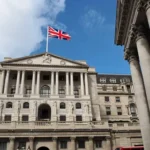Tesla EV charging stations are very much at the forefront of Japan’s new policy deliberations as the country navigates high-stakes trade tariff negotiations with America. With global pressure mounting, Japan is reconsidering its subsidy policy for EV infrastructure, which at present exclusively supports only CHAdeMO chargers—and not Tesla EV charging stations—a step the U.S. objects to on trade grounds. The government’s shift toward the inclusion of Tesla EV charging stations in its subsidy scheme is a possible turning point in both clean energy policy and global trade.
Read More: Tesla Board Adds Chipotle Star Jack Hartung
Japan Under Pressure From U.S. On EV Charging Station Standards
The United States has made official complaints to Japan about its restrictive EV charging subsidy policy, which at present excludes Tesla EV charging points. In favoring only the CHAdeMO standard, designed and promoted by Japanese manufacturers, Japan has been criticized for discouraging competition. American officials maintain that this gives Tesla EV charging points and other international charging formats a distinct disadvantage in the Japanese market.
As the third round of tariff talks approaches next week, Tesla EV charging stations will likely be a focal issue. Japan’s chief trade negotiator, Ryosei Akazawa, will possibly come to Washington to reassure the United States and set forth a new subsidy framework featuring Tesla EV charging stations, a move toward global standards.
Tesla Superchargers Might Join Japan’s Subsidy Network
The suggested reforms might represent a major milestone in the development of EV infrastructure. Japan has approximately 40,000 EV charging stations, predominantly CHAdeMO, and plans to increase this number to 300,000 by 2030. Widening the subsidy scheme to cover Tesla EV charging stations would not only update Japan’s charging network but also facilitate consumer choice and competition.
Subsidizing Tesla EV charging stations would promote expansion of Tesla’s Supercharger network throughout Japan and make EV travel more convenient. Additionally, it is a sign of Japan’s increasing awareness of worldwide EV trends and its willingness to partner with the U.S. in achieving clean transport objectives.
Tariff Talks Could Shape Japan’s EV Future
Aside from EV infrastructure, tariff negotiations are vital to Japan’s export-driven economy. Japan is subject to 25% U.S. tariffs on cars and car components and wants the reductions or elimination of these tariffs. That said, negotiation of Tesla EV chargers stations in subsidy talks can be a trade-off, demonstrating good faith in return for tariff relief.
US officials argue that subsidizing Tesla EV chargers stations amounts to fair competition, not favoritism. It favors a varied charging ecosystem that benefits not just Tesla owners. But also the entire EV market, which is increasingly based on universal compatibility and fast-charging ability. Both of which areas Tesla EV charging stations dominate.
Also Read: AI Data Center Deal Boosts UAE-US Tech Power Alliance
Embracing Global Standards for a Cleaner Tomorrow
If Japan formally shifts towards subsidizing Tesla EV chargers stations, it will represent a move toward internationally coordinated EV infrastructure. The move would not only be advantageous for Tesla but also increase the country’s stature during the global EV revolution.
As the global world tilts towards sustainable transport. Increased backing for Tesla EV charging points may be a game-changer for Japan’s energy policy. Enabling cleaner cities, more resilient trade ties, and quicker EV take-up. By getting its policies in alignment with international norms. Japan can lead the world towards an electric vehicle future that is more affordable, effective, and rewarding for everyone.
For More Trending Business News, Follow Us 10xtimes News






